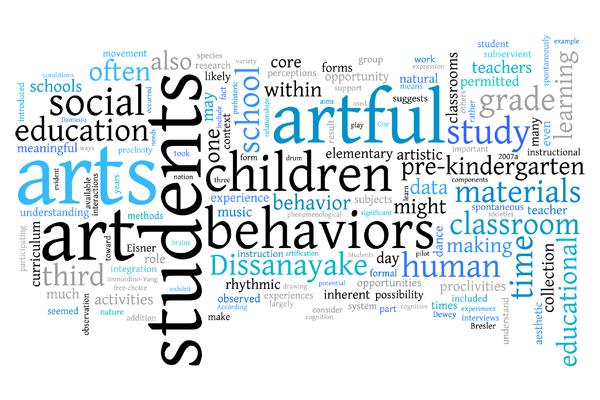Toward Meaningful Education:
Investigating Artful Behavior as a Human Proclivity in the Classroom
Carolina Blatt-Gross
Georgia Gwinnett College, USA
Citation: Blatt-Gross, C. (2013). Toward meaningful education:
Investigating artful behavior as a human proclivity in the classroom. International Journal of Education & the Arts, 14(7). Retrieved [date] from
http://www.ijea.org/v14n7/.
Abstract
Because students spontaneously exhibit aesthetic and rhythmic acts in the
classroom and human beings across the world have engaged in the arts for
thousands of years, this study argues that artful behavior represents an inherent
and significant human proclivity. Exploring the tension between the human
predisposition and the physical and mental limitations of traditional formal
education, this cross-disciplinary study seeks to understand how artful
behaviors might represent an intrinsic part of human nature and how such
proclivities might inform educational policy and practice. Based on an
ethological understanding of art (that is, as a behavior rather than an object),
this research employs an interpretivist lens and phenomenological design. Data
collection methods include observation, participant observation, and teacher
interviews in a pre-kindergarten and third grade classroom of an urban public
school system. Ultimately, this study aims to understand artful behaviors as
they are embedded in educational contexts with the intent of bridging the gap
between our natural inclinations for learning and the methods utilized in
mainstream education.
Visual Abstract

This article is available in PDF format.
|

